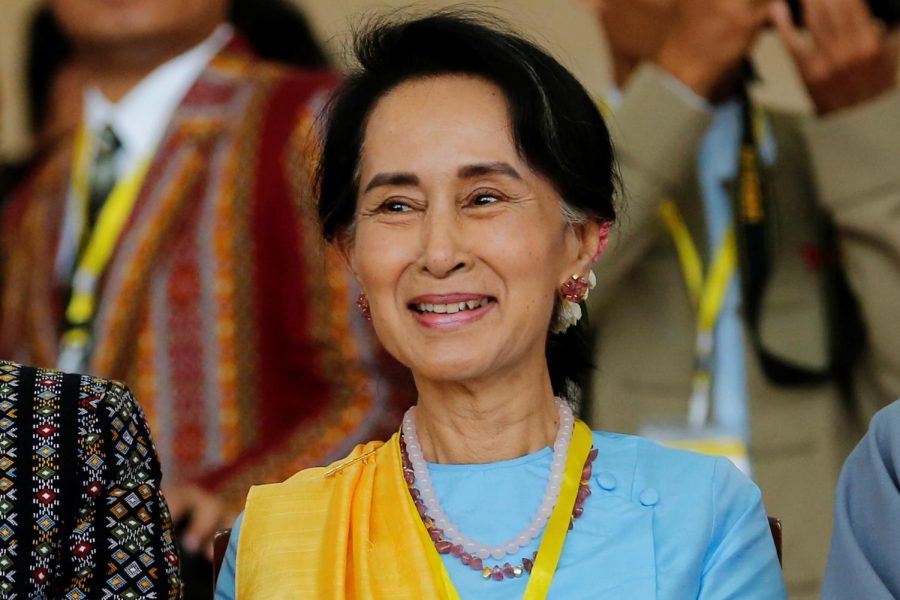Myanmar Stands Up
Photographed for the New Yorker, Suu Kyi smiles for the camera oblivious of what is to come.
On February 1st, the Myanmar military seized control of the government of Myanmar, returning it to military rule. According to Victoria Milko at AP News, the military declared a year-long state of emergency in the South-East Asian country after they deposed the country’s Democratic State Leader Aung San Suu Kyi. This is not the first coup d’etat Myanmar has experienced.
“What makes this different, I think, is before the military just shut people down and at this time even though they’re doing that, people are still showing up in the streets every day,” OHS AP World History teacher Michelle Naylor said. “Previous to this, there had been other times when people rose against the government in Myanmar and were killed… but I think it’ll have a lasting impact because you’re not seeing the same result you did in previous years.”
February 28th was the bloodiest day so far, with the Democratic Voice of Burma reporting a confirmed 19 kills and a further 10 unconfirmed. According to the UN Human Rights Office, the military has been using tear gas, flash grenades, stun grenades and live ammunition on peaceful protesters, a painful parallel to the Rohingya crisis perpetuated by the same democratic government that is now the target.
It’s easy for people to separate themselves from what is going on due to the fact that it is in such a distant place, but the current state that Myanmar is in can teach quite a bit about what can possibly occur in any democratic nation.
“I think we’ve all seen how fragile democracy is recently in America and I think Myanmar could be a real warning sign about what can happen if your state can just turn off your internet, what can happen if your state can rewrite the Constitution,” Naylor said.
According to AP News, in Myanmar currently, the military is attempting to shut down the internet, which is many people’s only source of news. They are also implementing blocks on several social media sites, stemming the flow of critical information.
“Americans have a real issue understanding what it takes to cultivate a strong democracy, as well as what they’re sacrificing if democracy leaves. Myanmar is a perfect example of what happens when you don’t have democracy, such as people getting shot in the streets for expressing their ideas,” Naylor said.























































